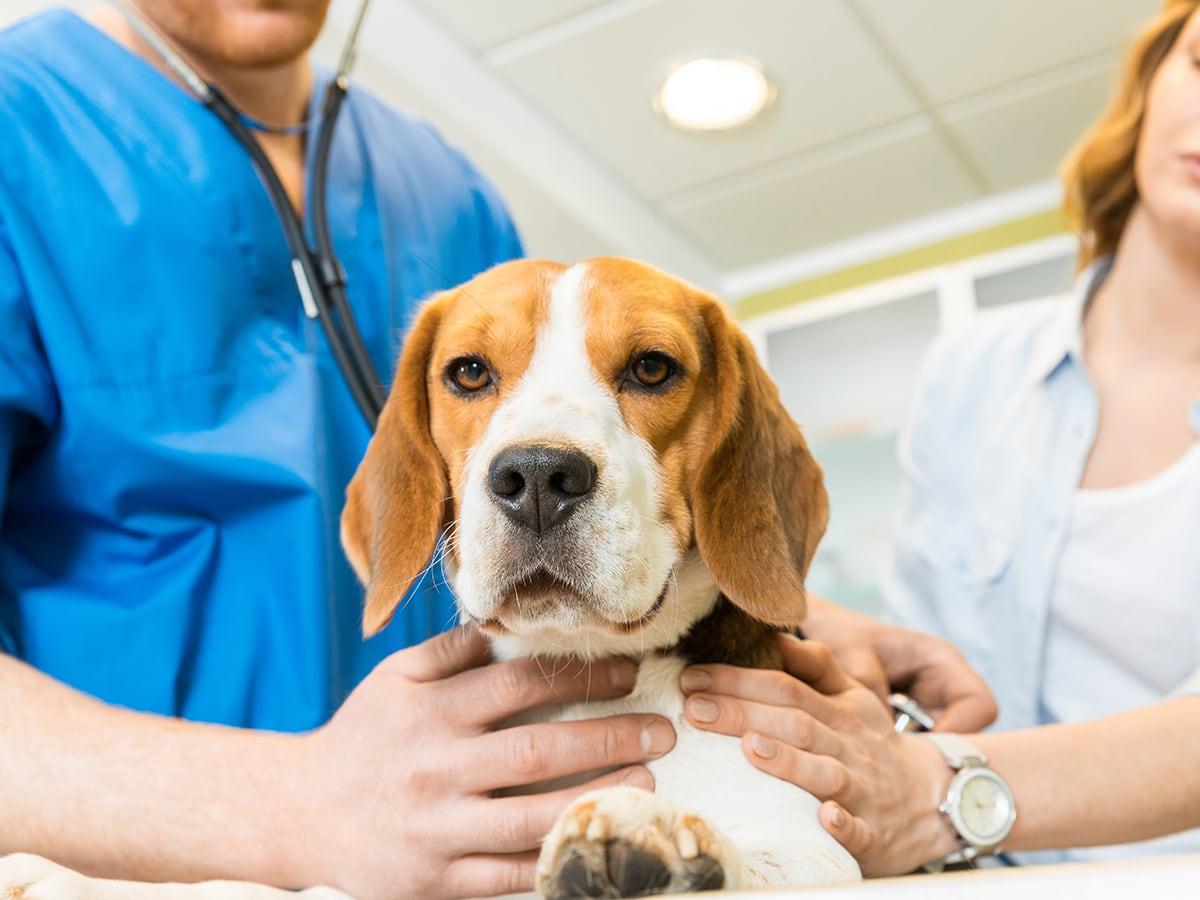If you've ever heard your dog make a strange, snorting, honking sound that sounds almost like a sneeze in reverse, you've likely witnessed a reverse sneeze. While it can be alarming for pet owners, reverse sneezing is generally a harmless and temporary phenomenon. In this blog, we'll explore the causes, symptoms, and what you can do when your dog experiences a reverse sneeze.
What is Reverse Sneezing?
Reverse sneezing, also known as paroxysmal respiration or inspiratory paroxysmal respiration, is a common respiratory event in dogs. It involves rapid and forceful inhalation through the nose, accompanied by a distinctive snorting or honking noise. While it may sound distressing, it's usually not a cause for concern.
Causes of Reverse Sneezing
The exact cause of reverse sneezing isn’t always clear, but it's often triggered by irritation or inflammation in the nasopharynx (the area at the back of the nose and throat). Potential triggers include:
Allergies: Pollen, dust mites, or other allergens can irritate the nasal passages.
Irritants: Dust, smoke, strong odors, or household chemicals can also cause irritation.
Excitement or Exercise: Sometimes, excitement or physical exercise can lead to a reverse sneeze.
Pulling on the Leash: Pressure on the neck from a tight leash can trigger the reflex.
Eating or Drinking too Quickly: This can cause irritation or food particles to lodge in the throat.
Infections: Upper respiratory infections, nasal mites, or other infections can contribute.
Anatomical Abnormalities: Brachycephalic breeds (dogs with short noses) may be more prone due to their elongated soft palates.
Symptoms & Identification
During a reverse sneeze, your dog will typically:
Stand still with their neck extended and head tilted back.
Make rapid and forceful inhalations through their nose.
Produce a loud snorting or honking sound.
Have flared nostrils and closed mouth.
Episodes usually last for a few seconds to a minute, and your dog should return to normal afterward.
When to See a Vet
While reverse sneezing is generally benign, consult your veterinarian if:
Episodes are frequent or prolonged
Your dog shows other signs of respiratory distress
You suspect an underlying medical condition
Your vet can rule out other causes of respiratory issues and recommend treatment if necessary.
Treatment & Management
Most cases of reverse sneezing require no treatment. However, you can try to help your dog during an episode by:
Gently massaging their throat
Briefly covering their nostrils to encourage swallowing
Offering them a drink of water
If your dog experiences frequent reverse sneezing, your vet may suggest:
Allergy medication or antihistamines
Treatment for nasal mites or other infections
Surgery to correct anatomical abnormalities in severe cases
How do you treat reverse sneezing in dogs?
In most cases, reverse sneezing resolves on its own without any intervention. If you wish to help your dog during an episode, you can try gently massaging their throat, briefly covering their nostrils to stimulate a swallow, or offering them a drink of water. For dogs with frequent or severe episodes, your vet may recommend addressing underlying causes like allergies or infections, or in some cases, surgery to correct anatomical abnormalities1.
What can be mistaken for reverse sneezing in dogs?
Reverse sneezing can sometimes be confused with other respiratory conditions, particularly tracheal collapse, which is more common in small-breed dogs. Tracheal collapse causes a honking cough and difficulty breathing, and it requires immediate veterinary attention. If you're unsure whether your dog is experiencing reverse sneezing or another respiratory issue, it's always best to consult your vet5.
How much reverse sneezing is too much?
While occasional reverse sneezing is normal, frequent or prolonged episodes may warrant a visit to the vet. It's not unusual for dogs to experience one or two episodes in a day. However, if your dog is reverse sneezing more than twice a day or the episodes last for an extended period, it's worth seeking veterinary advice to rule out any underlying issues3.
Living with Reverse Sneezing
Reverse sneezing is typically a harmless and temporary occurrence. While it may be startling to witness, rest assured that it's rarely a cause for concern. By understanding its causes and knowing how to respond, you can help your dog through these episodes and ensure their overall respiratory health. If you're worried about your dog's reverse sneezing, always consult your veterinarian for professional advice and guidance.
About the Author
This blog was reviewed by a DVM at Eagle Glen Veterinary Clinic. This clinic has been serving pets in LA since 1988! The vets and technicians have a passion for pet care and the skill to give excellent service! Visit https://www.instagram.com/eagleglen.vc/ or https://eagleglenvets.com/index.cfm for more.

With 10 years of experience as a pet parent, I aim to empower pet owners with insights into pet insurance and maintaining their pet's well-being. I aspire to be a trusted source, combining knowledge with a commitment to the welfare of our beloved pets.

Eagle Glen Veterinary Clinic has been serving pets in LA since 1988! The vets and technicians have a passion for pet care and the skill to give excellent service! Visit https://www.instagram.com/eagleglen.vc/ or https://eagleglenvets.com/index.cfm for more.
Reverse Sneeze in Dogs. (n.d.). In VCA Animal Hospitals. Retrieved August 22, 2024, from https://vcahospitals.com/know-your-pet/reverse-sneeze-in-dogs
Reverse Sneezing. (n.d.). In Cornell University College of Veterinary Medicine. Retrieved August 22, 2024, from https://www.vet.cornell.edu/departments-centers-and-institutes/riney-canine-health-center/canine-health-information/reverse-sneezing
Reverse Sneezing in Dogs. (n.d.). In Small Door Veterinary. Retrieved August 22, 2024, from https://www.smalldoorvet.com/learning-center/medical/reverse-sneezing-in-dogs
Reverse Sneezing in Dogs and Cats. (2021). In Symptoms, Treatment, and Identification. https://www.embracepetinsurance.com/health/reverse-sneezing
Savannah S. (2023). Understanding Reverse Dog Sneezing. In Shawsheen Animal Hospital. https://shawsheenanimalhospital.com/understanding-reverse-dog-sneezing/












